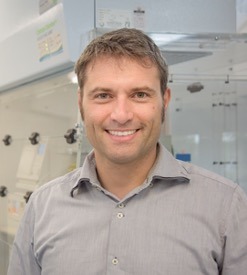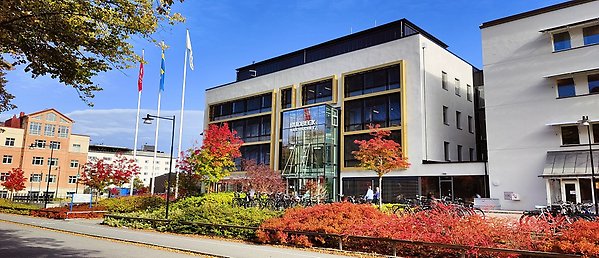[Drug Discovery Seminar] PROTAC Degraders: From Fundamental Chemical Biology to Translation and Entrepreneurship
November 12 @ 14:00 – 15:00 CET
SciLifeLab Drug Discovery Seminars, hosted by the DDD platform, is a series of educational lectures about recent developments, technologies, and trends in drug discovery and development that aims to enlighten, and spark a discussion, within the Swedish drug discovery community.
Alessio Ciulli
Professor of Chemical Structural Biology
Centre for Targeted Protein Degradation, School of Life Sciences, Division of Biological Chemistry and Drug Discovery, University of Dundee
Abstract
Proteolysis-targeting chimeras (PROTACs) are a new class of chemical tools and drugs that target disease-causing proteins for degradation. They are designed to harness the cell’s natural disposal system (the ubiquitin-proteasome) to specifically remove proteins. A PROTAC is a two-headed (i.e. bifunctional) molecule where one end binds an enzyme (an E3 ubiquitin ligase) and the other binds the target protein, bringing the two proteins into close proximity as a ternary complex. The ligase is then able to label the target protein for ubiquitination and so degradation by the cell’s disposal system. Whereas conventional drugs only inhibit disease proteins by binding and locking up their most important functional parts for the duration of the drug’s action, PROTACs can bind at any positions and rapidly cause the disease protein’s permanent and long-lasting destruction. Due to this revolutionary mode of action, PROTACs can attack targets previously thought ‘undruggable’.
In my lecture, I will outline some key discoveries from my laboratory that have advanced the chemical structural biology of PROTACs, and are providing fundamental insights into our understanding of their molecular recognition, mechanism of action and drug design. I will also offer insights from our efforts to translate this fundamental science into molecular therapeutics to benefit patients, via both partnerships with big pharma and formation of company spin-outs. Finally I will highlight the vision and mission of our recently announced new Centre for Targeted Protein Degradation at Dundee.
Short Bio

Alessio Ciulli holds the Personal Chair of Chemical Structural Biology at the School of Life Sciences, University of Dundee. He is also the Director of the newly announced Dundee’s Centre for Targeted Protein Degradation (CeTPD). Dr Ciulli’s laboratory has made important contributions to selective chemical intervention on protein-protein interactions targets and to the development of proteolysis-targeting chimeric molecules (PROTACs) as a viable strategy for targeted protein degradation. Amongst his most significant discoveries are the fragment-based design of ligands for the E3 ligase von Hippel-Lindau (VHL), and their use to design one of the first VHL-based PROTACs: the BET degrader MZ1. Dr Ciulli’s Lab later illuminated fundamental insights into PROTACs’ mechanism of action, solving the first crystal structure of a PROTAC ternary complex. Dr. Ciulli is the scientific founder of Amphista therapeutics, a company that develops new protein degradation platforms. Before joining Dundee, Dr Ciulli was a group leader at the University of Cambridge, where he previously earned his PhD degree. Amongst his honours are the EFMC Prize for Young Medicinal Chemist in Academia, the RSC Capps Green Zomaya Award in medicinal computational chemistry, and election as Fellow of the Royal Society of Chemistry.

